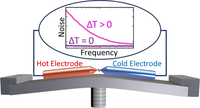
Delta-T Flicker Noise Demonstrated with Molecular Junctions
Electronic flicker noise is the most abundant noise in electronic conductors. Here, we identify an unknown type of electronic flicker noise that is found when a temperature difference is applied across a nanoscale conductor. While this noise can be a performance-limiting factor, on the positive side, it can detect temperature differences across a large variety of nanoscale conductors, down to atomic-scale junctions with no special setup requirements.
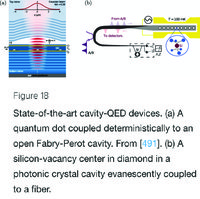
Quantum repeaters: from quantum networks to the quantum internet
A quantum internet is the holy grail of quantum information processing, enabling the deployment of a broad range of quantum technologies and protocols on a global scale. However, numerous challenges must be addressed before the quantum internet can become a reality.
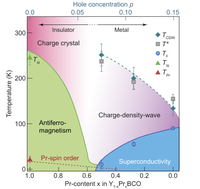
Discovery of charge order in a cuprate Mott insulator
High-temperature superconductivity (HTS) and charge density waves (CDW) are two prominent types of quantum electronic order that occur in cuprates. Using x-ray spectroscopy, muon spin rotation and electrical transport measurements on a special family of lanthanide-based cuprates, the authors have discovered a continuous evolution of the CDW order from the superconducting regime to the Mott insulator limit, indicating both HTS and CDW to be emergent phenomena of strong-correlation physics.
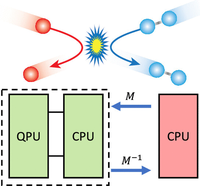
A Hybrid Quantum-Classical Algorithm for Multichannel Quantum Scattering of Atoms and Molecules
This paper proposes a hybrid quantum-classical algorithm for solving the time-independent Schrödinger equation for atomic and molecular collisions. It discovers that calculating scattering cross sections and rates for complex molecular collisions on NISQ quantum processors is possible. Some potential applications of their research include: scalable digital quantum computation of gas-phase bimolecular collisions and reactions of relevance to astrochemistry and ultracold chemistry.
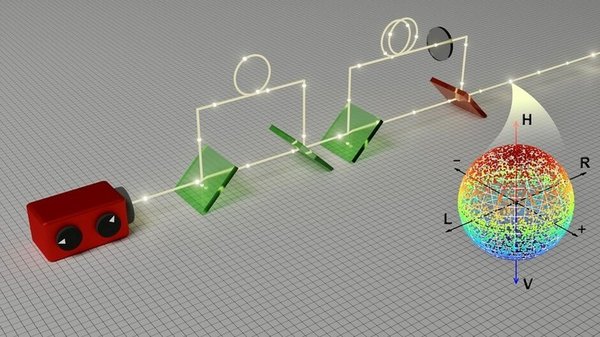
Fully Passive Quantum Key Distribution
The authors have proposed a Quantum Key Distribution (QKD) scheme without any modulators, which removes a major source of side channels on QKD sources. The proposal suggests a new type of passive linear optical QKD source. This breakthrough can help improve the security of practical QKD systems.
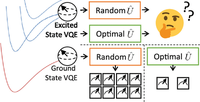
Measurement optimization techniques for excited electronic states in near-term quantum computing algorithms
The authors investigate how to improve the quantum measurement efficiency for
the variational quantum eigensolver (VQE). Since VQE is one of the most popular near-term quantum algorithms for solving the electronic structure problem. They achieve this goal by investigating various measurement techniques to two widely used excited state VQE algorithms: multistate contraction and quantum subspace expansion.
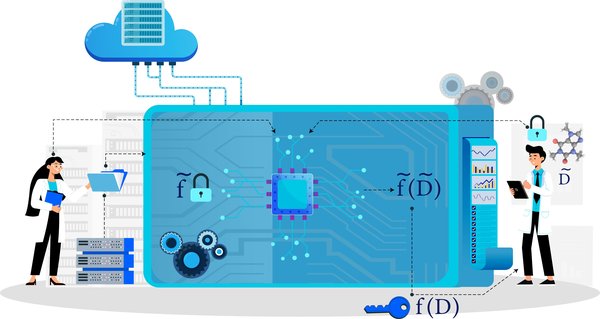
Encrypted machine learning of molecular quantum properties
This paper discusses implementing Encrypted Machine Learning models by using oblivious transfer enabling, and secure predictions of molecular quantum properties. These secure and computationally feasible models can better protect privacy in chemistry and medical sciences, such as protecting customers' medical data. Overall, the team discusses recent findings and limitations of these models.
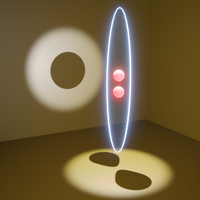
Emergent s -Wave Interactions between Identical Fermions in Quasi-One-Dimensional Geometries
Fermions sharing orbital excitation in a Bell-singlet are found to scatter with even exchange symmetry. This new collisional mode is enabled by a non-equilibrium occupation of the excited transverse state, which was at first unintentional -- a fortuitous impurity -- and later controlled in our experimental protocol. This finding points to new combinations of dimensionality and scattering symmetry.
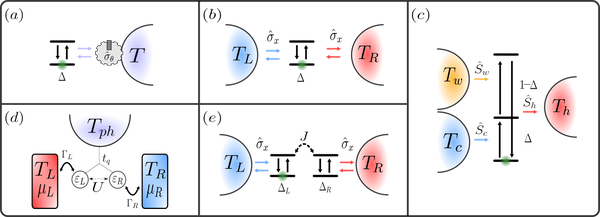
Effective-Hamiltonian Theory of Open Quantum Systems at Strong Coupling
The paper presents a new theoretical framework that allows an analytical treatment of quantum systems at strong coupling with their surroundings, bringing deep understanding of the impact of strong system-bath coupling effects on open quantum system phenomena. It describes the application of this general approach to central problems in quantum thermodynamics such as quantum thermalization, heat transport, quantum refrigeration, nanoscale thermoelectric power generators & dissipative spin chains.

Characterization of State-Preparation Uncertainty in Quantum Key Distribution
The authors investigate how to create a secure quantum key distribution (QKD) by performing a proof-of-principle demonstration of the experimental techniques for characterizing the source phase and intensity fluctuation in commercial QKD systems.
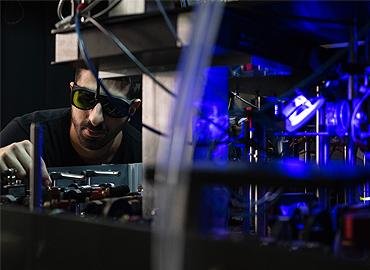
Unitary p-wave interactions between fermions in an optical lattice
Researchers study how isolated pairs of atoms interact with each other. Namely, they observed a theoretical limit of p-wave forces for the first time. This paper provides insight into quantum simulations.

